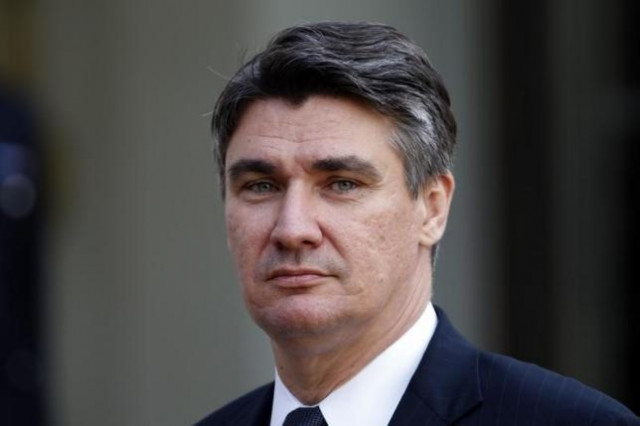Croatian PM urges his deputies to quit
Crisis deepened last month after details emerged of alleged conflict of interest involving Tomislav Karamarko

Croatian Prime Minister Zoran Milanovic is seen as he leaves the Elysee Palace in Paris, October 10, 2013. PHOTO: REUTERS
The work of the fragile right-wing coalition, which has a thin parliamentary majority, has been marred by constant internal wrangling since it took power in January.
The crisis deepened last month after details emerged of an alleged conflict of interest involving powerful deputy premier Tomislav Karamarko, leader of the HDZ party, who now faces a no confidence vote in parliament.
The other deputy premier, Bozo Petrov, said last week that his Most party - the junior partner in the coalition - would back the no confident vote if Karamarko did not step down.
Croatia showcases lovebird storks to draw visitors
"It is clear to everyone that the current political situation has started to jeopardise national interests," Oreskovic told reporters.
He warned that relations between Karamarko and Petrov had become "too heavy a burden for this government and Croatia".
"I urge Karamarko and Petrov to step down from their duties."
Oreskovic, a non-partisan former pharmaceutical executive, spoke two days after Croatia suspended the issuing of its eurobonds with the finance ministry citing "domestic political uncertainties" as the reason.
Some local media have speculated that Oreskovic might step down soon due to the deep split within the barely-functioning coalition, and some HDZ officials have suggested he should make the move.
But Oreskovic on Friday insisted his resignation was not on the cards.
Karamarko's no-confidence vote is due by June 18.
Last month a local newspaper published a contract showing that a lobbyist for Hungary's oil group MOL, which is in dispute with Croatia over its local peer INA, paid Karamarko's wife for consulting services between 2013 and 2015.
Karamarko acknowledged the existence of the contract but has denied any wrongdoing. A national watchdog has been probing the affair.
The Croatian government and MOL, holding a 44.8 and a 49 percent stake respectively in oil group INA, are engaged in arbitration proceedings, notably over how the company is managed.
Early elections would delay the implementation of badly-needed reforms in the European Union's newest member, whose economy remains one of the poorest performers in the 28-nation bloc.



















COMMENTS
Comments are moderated and generally will be posted if they are on-topic and not abusive.
For more information, please see our Comments FAQ